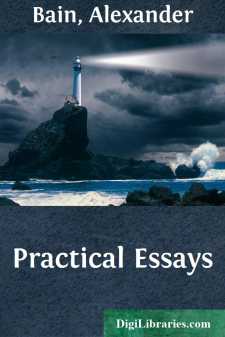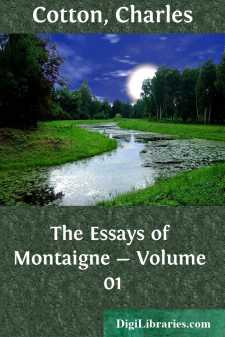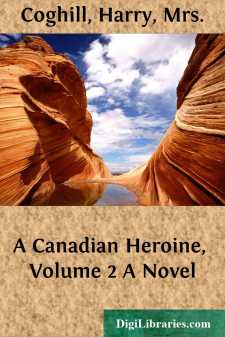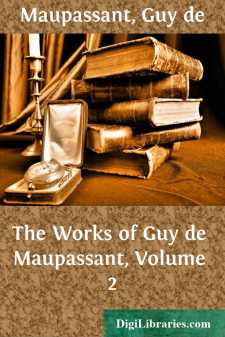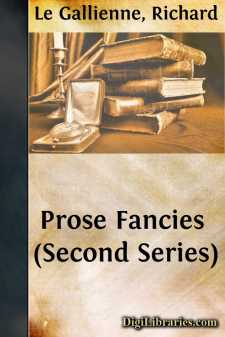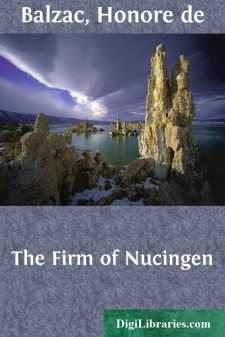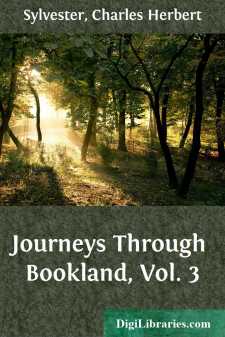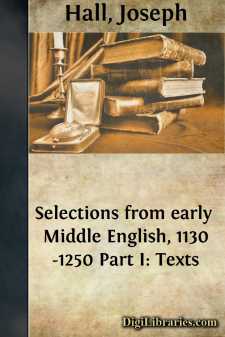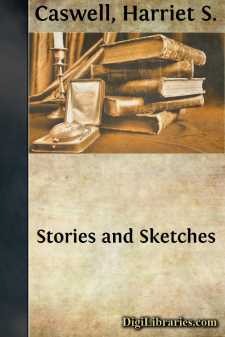Literary Collections
- American 84
- Ancient, Classical & Medieval 14
- Asian 1
- Australian & Oceanian 1
- Canadian 55
- Continental European 121
- English, Irish, Scottish, Welsh 179
- Essays 160
- General 24
- Letters 46
- Middle Eastern 1
Literary Collections Books
Sort by:
by:
Alexander Bain
I. On the prevailing errors on the mind, proposed to be considered in this paper, some relate to the Feelings, others to the Will. In regard to Mind as a whole, there are still to be found among us some remnants of a mistake, once universally prevalent and deeply rooted, namely, the opinion that mind is not only a different fact from body—which is true, and a vital and fundamental truth —but is to...
more...
by:
Charles Cotton
PREFACE. The present publication is intended to supply a recognised deficiency in our literature—a library edition of the Essays of Montaigne. This great French writer deserves to be regarded as a classic, not only in the land of his birth, but in all countries and in all literatures. His Essays, which are at once the most celebrated and the most permanent of his productions, form a magazine out of...
more...
by:
Harry Coghill
CHAPTER I. Mrs. Costello had felt it a kind of reprieve when she heard from Mr. Strafford that they might delay their journey safely for a month. The sober middle age which had come upon her before its time, as her life rolled on out of the anguish and tumult of the past, made home and quietness the most desirable things on earth to her, and her health and spirits, neither yet absolutely broken, but...
more...
I Little George was making hills of sand in one of the walks; he took it up with both his hands, made it into a pyramid, and then put a chestnut leaf on the top, and his father, sitting on an iron chair was looking at him with concentrated and affectionate attention, and saw nobody but him in that small public garden which was full of people. All along the circular road other children were occupied in...
more...
A SEVENTH-STORY HEAVEN At one end of the city that I love there is a tall, dingy pile of offices that has evidently seen more prosperous fortunes. It is not the aristocratic end. It is remote from the lordly street of the fine shops of the fair women, where in the summer afternoons the gay bank clerks parade arm-in-arm in the wake of the tempestuous petticoat. It lies aside from the great exchange...
more...
by:
Honore de Balzac
THE FIRM OF NUCINGEN You know how slight the partitions are between the private rooms of fashionable restaurants in Paris; Very's largest room, for instance, is cut in two by a removable screen. This Scene is not laid at Very's, but in snug quarters, which for reasons of my own I forbear to specify. We were two, so I will say, like Henri Monnier's Prudhomme, "I should not like to...
more...
Last spring I found a pumpkin seed, And thought that I would goAnd plant it in a secret place, That no one else would know,And watch all summer long to see It grow, and grow, and grow,And maybe raise a pumpkin for A Jack-a-lantern show. I stuck a stick beside the seed, And thought that I should shoutOne morning when I stooped and saw The greenest little sprout!I used to carry water...
more...
by:
Joseph Hall
No description available
TERRY DOLAN. ome years since circumstances caused me to spend the summer months in a farming district, a few miles from the village of E., and it was there I met with Terry Dolan. He had a short time previous come over from Ireland, and was engaged as a sort of chore boy by Mr. L., in whose family I resided during my stay in the neighborhood. This Terry was the oddest being with whom I ever chanced to...
more...
by:
John Dryden
SCENE.—London. ACT I. SCENE I.—FAILER entering to BURR, who is putting on his buff-coat. Fail. What! not ready yet, man? Burr. You do not consider my voyage from Holland last night. Fail. Pish, a mere ferry; get up, get up: My cousin's maids will come and blanket thee anon; art thou not ashamed to lie a-bed so long? Burr. I may be more ashamed to rise; and so you'll say, dear heart, if...
more...


